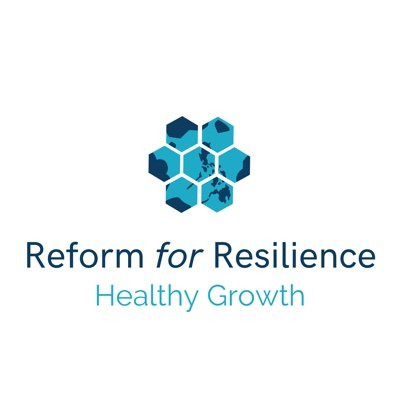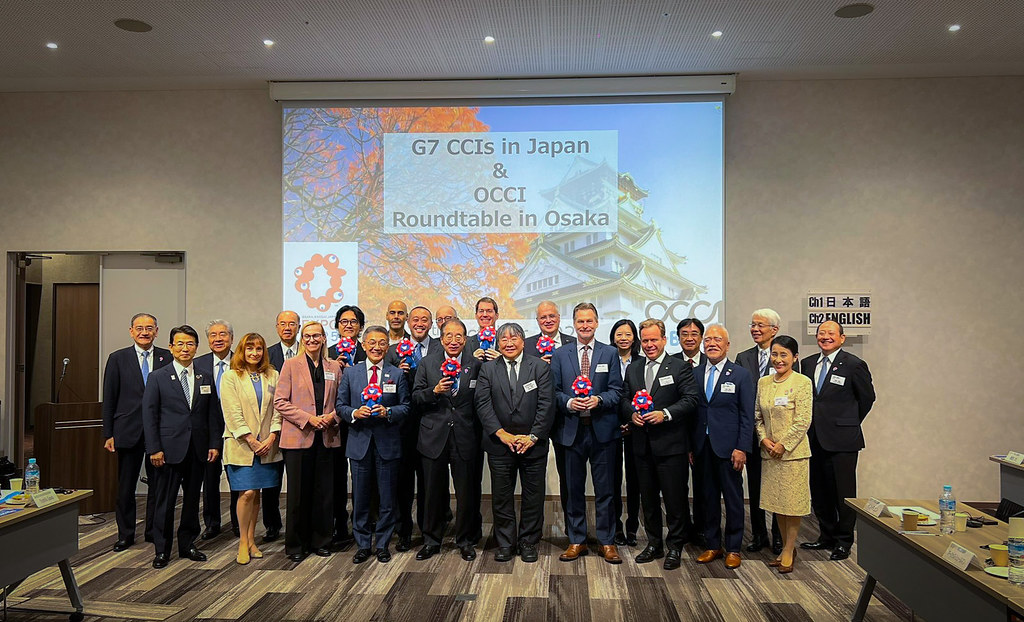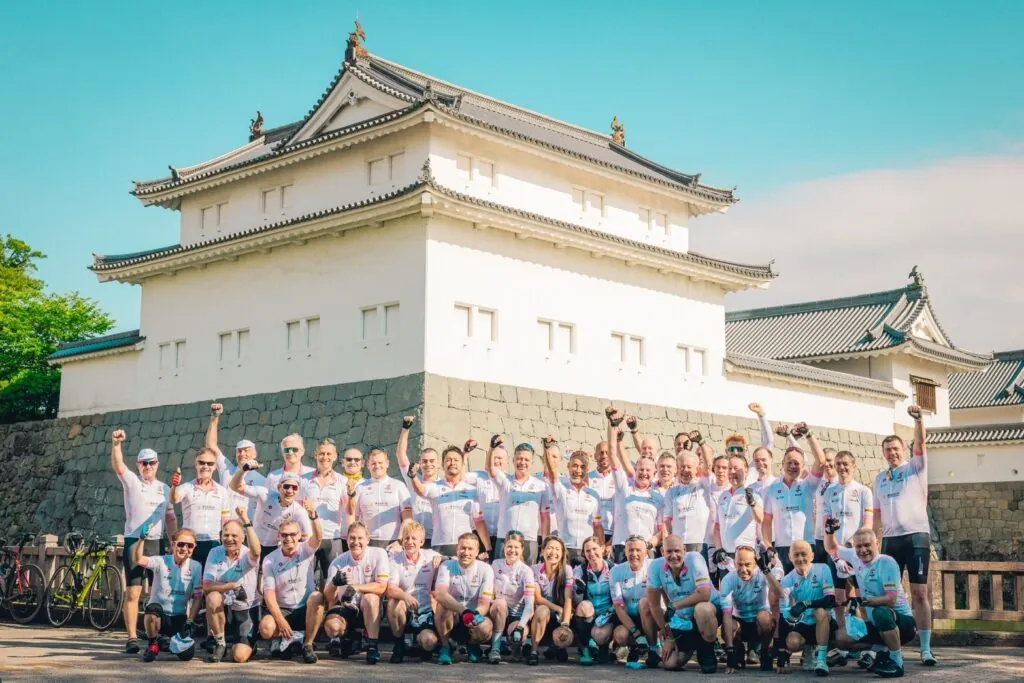Member? Please login
Former Prime Ministers and global life science + health leaders call on G7 Summit to be “Bretton Woods moment for global health economy”

Written by BCCJ
June 7, 2021
Community and Business, Partner News
Former Prime Ministers and global life science + health leaders call on G7 Summit to be “Bretton Woods moment for global health economy”
The Reform For Resilience Policy Commission has published an interim report (here) calling for the upcoming G7 Summit (11-13 June 2021 in the UK) to establish the first truly integrated approach to global health, economics and the environment post-pandemic, akin to the Bretton Woods discussions which shaped global financial cooperation at the end of the Second World War.
The report goes on to outline the Commission’s Key Findings from the ongoing COVID-19 Pandemic, its Urgent Recommendations to the G7 for tackling the outbreak and initial thinking on building long term models for healthier, cleaner and more sustainable growth.
Recommendations include
- Extra US$2bn funding for COVAX vaccine programme for next year
- Creation of a global biosecurity + pandemic surveillance data cloud
- New OECD global framework for ‘healthier growth’ metrics embedded in company ESG systems
The Commission comprises leaders from business, science and politics across the globe, including former European Commissioners, past Prime Ministers of Australia, Finland and Portugal, the former Vice President of Taiwan, and senior figures from Apple Inc., AstraZeneca plc, Oxford and Harvard Universities and MIT.
Report’s Recommendations
COVID is a wake-up call to the world that our underinvestment in global population health is as urgent a systemic threat to global prosperity as the Global Financial Crisis and Climate Change, says the interim report.
The pandemic has revealed that the world was not prepared for the pandemic we had every reason to anticipate and that we have seriously neglected investment in health system resilience.
As an immediate priority, the G7 should commit to more urgent global vaccine distribution. In particular, in addition to the welcome funding secured for this year, the COVAX programme will need additional funds of at least US$2bn for next year. The G7 should also commit to the creation of a robust global framework for sharing pandemic and biosecurity risk data and a new OECD global framework for ‘healthier growth’ metrics embedded in company ESG systems.
The Commission was convened by former UK Minister for Life Science George Freeman MP, architect of the UK Life Science Strategy 2011 which laid the foundations for the UK’s genomic science leadership, as an international alliance to make COVID-19 a catalyst for strengthening the global institutional commitment to a healthier and more resilient model of global growth.
Highlighting key lessons from countries across the globe over the first 16 months of the pandemic, the Commission challenges policymakers not to think of the pandemic as a “one in 100 year event” but instead a “wake-up” call for wealthier nations to take biosecurity, population health and health economic resilience as seriously as climate change and the Global Financial Crisis of 2007/8.
In the interim findings the Commission calls for a co-ordinated commitment to decentralise and diversify vaccine manufacturing to avoid the problems of over-concentration in a small number of countries, rendering global supply chains vulnerable to supply chain bottlenecks and other threats.
The report also calls for aggressive measures combined with sensitive community approaches to counter anti-vax vaccine disinformation preventing the necessary uptake of vaccines required to achieve effective global protection.
In addition, the report recommends the removal of barriers and creation of a clear ethically sound framework of incentives for vaccine uptake. This includes generating evidence for the role of Vaccine Passporting and vaccine uptake for industries based on high density such as tourism, airlines, hospitality and sports venues.
Warning that the crisis is far from over, the report finds that COVID-19 represented an extraordinary test of the resilience of the global economy and every institution, revealing shocking weaknesses in global pandemic preparedness and response, most notably inadequate surveillance and data sharing protocols, as well as vaccine distribution supply chains and access, which have caused millions of deaths and cost the global economy trillions.
The Commission therefore recommends new global policy architecture – a new Bretton Woods for health – involving a much broader range of coordination that adds to the capabilities of the World Health Organization, to enable more timely and complete global disease surveillance and data sharing, and a global institutional commitment to health as a global good.
The Commission also recommends the OECD and G20 support a new approach to health economic resilience by design with new metrics to better measure, monitor and manage health economic resilience in the same way as systemic financial resilience is now managed after the financial crash, with each G20 country establishing an independent “Office for Health Resilience” similar to the UK’s Office for Budget Responsibility, to ensure a properly integrated basis for measuring, monitoring and managing the relationship between health and economic resilience in a population.
Crucially, the Commission insists that serious health and economic resilience conceived as ‘healthy growth’ can only be delivered by mainstreaming healthier growth in day-to-day business actions, through renewing and expanding commitments to improving workplace and workforce health, commuting patterns, the built environment and creating incentives for business to build these improvements into ESG management systems.
The Commission will continue to work with the OECD, the G20 and the World Economic Forum to develop evidence-based metrics of healthy growth essential to deliver healthier, cleaner and more sustainable growth for a new generation.
Its final report setting out its proposed new model will be published at its global Summit later this year.
Commission and Dean of Harvard TH Chan School of Public Health, said: “We need to make this a “Bretton Woods” moment for global health. As global leaders emerge from the COVID-19 pandemic, we must seize the opportunity to learn the lessons and make this crisis a catalyst for serious reforms. Reforms both for improving the health resilience of economies – but also for looking more deeply at the issue of ‘healthier growth’ alongside cleaner growth.
“Too much of the ‘pandemic preparedness’ agenda assumes that pandemics are rare ‘one in a hundred year’ events and that the development of a vaccine alone is enough to end the crisis. It isn’t.
“Serious pandemic preparedness requires the vital longer-term lesson of COVID as a wake-up call for serious strengthening of global institutional commitment to health and economic resilience: recognizing that the pace of globalization, social inequities and climate change are increasing the risk of phytosanitary and respiratory disease outbreaks. We need new approaches to tackle multisectoral systemic structural weaknesses exposed by the pandemic as part of a post-COVID-19 policy reset.“
George Freeman MP, Convenor of The Reform for Resilience Commission, and former first UK Minister for Life Science, said: “Lasting policy reform has to be long term. When we launched the UK’s groundbreaking Life Science Strategy investing in genomics, MHRA Accelerated Approvals and clinical trials in 2011 we never envisaged how valuable it would prove to be – for the world – in 2021.
“Serious policy reform requires new conversations and partnerships. The key to the Resilience Commission is two-fold:
- Convening: bringing together leaders from traditionally separate and often siloed worlds of business, health and government to frame genuinely integrated thinking on ‘health economy’ and the need for a new approach to resilience by design -recognising that health, economic and environmental resilience are linked.
- Corporate leadership: helping business leaders – of both global multinational and innovative new companies – to better play their part in leading, shaping and developing healthier growth.
“The pace of globalization makes future pandemics more likely. If we don’t make this a Bretton Woods moment for global health resilience, we will betray our responsibility to the planet and future generations.”
Notes to Editors
About the Reform for Resilience Commission
- The Reform for Resilience Commission is as an international alliance to make COVID-19 a catalyst for strengthening the global institutional commitment to a healthier and more resilient model of global growth.
- The Commission is led by Co-Chairs, His Excellency José Manuel Barroso (Chair of Gavi, the Vaccine Alliance; President of the European Commission, 2004-14; Prime Minister of Portugal, 2002-04), The Honorable Malcolm Turnbull, (Prime Minister of Australia, 2015-18) and Prof. Michelle Williams (Dean of Harvard TH Chan School of Public Health).
- The Co-Chairs serve alongside the following Commissioners from the worlds of business, science and politics:
- Sir John Bell, Regius Professor of Medicine, Oxford University
- The Honorable Chen Chien-jen, Vice President of Taiwan (2016-20)
- Lord William Hague, UK Foreign Secretary (2010-14)
- Prof. Lord Ara Darzi, Co-Director of the Institute of Global Health Innovation, Imperial College London
- Ms Connie Hedegaard, European Commissioner for Climate action (2010-14)
- Dr Sumbul Desai, Vice President, Apple Health
- Prof. David Heymann, Professor of Infectious Disease Epidemiology at LSHTM
- Mr Leif Johansson, Chairman, AstraZeneca
- Ms Roula Khalaf, Editor, The Financial Times
- Prof. Sharon Lewin, Director, The Peter Doherty Institute for Infection and Immunity
- Ms Marcella Panucci, Director General of Confindustria (2012-20)
- Prof. Ramesh Raskar, Associate Professor at MIT Media Lab
- Mr Stan Shih, Founder and Honorary Chairman, Acer Inc; Chairman, StanShih Foundation
- The Honorable Alexander Stubb, Director of the School of Transnational Governance; Prime Minister of Finland (2014-15)
- The Commission was convened by former UK Minister for Life Science George Freeman MP, architect of the UK Life Science Strategy 2011 which laid the foundations for the UK’s genomic science leadership.
- The Commission’s Regional Hubs provide leadership at different points across the globe by bringing people and institutions together to contribute policy recommendations based on the region’s experience in creating resilience in health, economy and the environment. Through partnership with corporations, governments and research institutions, the Hub formulates policy recommendations, and raises funds from foundations and companies to support the work of the Commission.
- For more information please visit: https://www.r4rx.org/







